Liquor Commission Special Meeting: “Let’s Keep Maui, Maui”
*Additional video is available on our Live Maui Now Facebook feed.
The Maui Liquor Commission convened today in Wailuku for a special meeting, prior to tomorrow’s regular session to review a request for a repeal of amendments relating to alcohol sales; and a petition to amend rules relating to hostess bars in Maui County. A standing room only crowd gathered for the meeting at the Trask Building in Wailuku, with testifiers spilling into the breezeway and courtyard as they waited for their turn to be heard.
About three months ago, the commission made changes to Maui’s liquor laws that include a removal of the 12 establishment cap on the number of hostess bars allowed to operate in Maui County. The commission also lifted the restriction on alcohol sales, allowing for the 24-hour sale of alcohol at retail establishments.
The changes were met with two separate letters from resident Mahina Martin, asking for a repeal of the law on 24-hour alcohol sales; and a petition to amend rules relating to the change, as well as the cap on hostess bars and the delivery of alcohol to private residences.
The changes also prompted a lawsuit, filed on Friday in Second Circuit Court, alleging the body failed to give the public proper notice that they were going to take action on the policy changes. The lawsuit seeks to have the rules invalidated.
Kīhei resident Madge Schaefer, who joined the Committee for Responsible Liquor Control in filing the suit testified today saying, “Back in February, with very little discussion, this commission amended dozens of rules, some of which alter the face of the community of Maui, without considering the human implications of 24-hour liquor sales on policing, drunk driving or social services that deal with battered women, alcohol addiction, and even child abuse. It never occurred to any of you to inquire about the impacts of greater liquor availability from the police or social service agencies, or even religious leaders on this island.”
“Striving to make liquor even more available, home delivery of liquor turns delivery people into identification monitors, only without having to determine condition of the buyer. If the party runs out of booze, maybe it’s time to call it a night,” Schaefer testified.
She continued saying lifting of the cap on the number of hostess bars raises the question, “‘What were you thinking?’ We all know that hostess bars is just a politically acceptable name for prostitution opportunities. There are two sets of victims–the guest, and the girls who entertain them. These girls are our daughters, our sisters, even our mothers. These types of places have been proven over and over to be engaging in human trafficking. Even guests are victimized. Each of you should look deep into your conscience and question, what makes you think we need more of these places on Maui,” said Schaefer.
45% of Hawaiʻi’s Fatal Traffic Crashes Involved Alcohol
Charles Hirata, a 32-year veteran and retired Captain with the Maui Police Department, said he spent 11 years with the department’s Traffic Section. As the Traffic commander, he was in charge of the DUI Task Force and the Vehicle Homicide Unit.
According to Hirata, in recent years, approximately 45% of Hawaiʻi’s fatal traffic crashes involved alcohol; and it is traditionally, one of the most serious contributing factors in Maui’s fatal crashes. “I feel that allowing liquor to be sold around the clock will exacerbate the problem of alcohol involved fatal crashes,” he said.
In addressing the liquor commission, Hirata said, “The decisions that you make affect others including members of the public. You, however, will not be responding to any vehicle crash at 4 a.m.; You will not be extracting crash victims from mangled vehicles; You will not be the ones struggling to keep victims alive in an ambulance; and you will not be the ones trying to save lives in emergency rooms. But most of all,” he said, “you won’t be accompanying the traffic officer who makes the death notification to family members.”
“Even though not every establishment is going to be selling liquor 24/7; however, it may cause people who know of an establishment in the next town, to travel to that next town after going to a bar or whatever liquor establishment they came from to travel the roadways to get to that next location,” said Hirata, “and that’s where it gets dangerous.”
“I’ve seen too many lives wasted by impaired driving. So help me save some lives. Make the right call,” Hirata testified. “If you look at the non-intentional cause of death, you’re going to find that fatal crashes is probably one of the highest, and adding one more factor to that is dangerous and nonsensical. So I implore you to think very carefully about the decision that you’re about to make,” said Hirata.
Sergeant Eric Correa, who sits on the Board of Directors with the State of Hawaiʻi Organizations of Police Officers, Maui Chapter said the rule changes affect the conditions of work of union members and how it relates to officer safety. “Our concern is the type of calls that we generated with the increased availability of alcohol with regards to the 24-hour liquor sales and the home delivery service.”
“The intensity of the calls, we noticed, increased–or the dangers in those incidents increase to the officer when alcohol is involved, because we know it impairs a persons normal mental faculties. They say to drink responsibly, but that’s an oxymoron because when you consume alcohol, it inhibits your ability to be responsible,” said Correa.
“We don’t want to see an increased risk to our officer’s safety,” said Correa. “The carnage that you guys don’t see behind the scenes is immense, and what that does is it creates vicarious trauma to the officer. We absorb that for you in our service–and it affects the way we relate to family and our friends,” he said.
Underage Drinking Prevention Coalition Gathers Input from Teens
Representatives with the Underage Drinking Prevention Coalition also testified today and discussed their recent Teen Expo, which is considered the largest community based awareness event to combat underage drinking. “At the event this year, we decided to gather a petition for the repeal so that we could get a better understanding of how our community at large feels about this issue. In a matter of just a few short hours, we were able to gather 95 petitions,” representatives said.
Organizers made an oversized lei out of the petitions, with each flower representing an individual signature and petition asking the liquor commission to repeal the 24-hour alcohol sale law. A separate online petition now has over 300 signatures.
Former Mayor Tavares Testifies: “Let’s Keep Maui, Maui.”
Former Maui Mayor Charmaine Tavares was among those who raised concerns at the meeting saying we at least should be able to tell ourselves that we heard from all the special interests. “What I’m concerned with is that while you have an advisory group that comes in to represent different people, the ones that I could understand who were at your meeting, represented the industry that makes their living from alcohol sales. Of course, they have to represent their people, and they presented what they wanted to you.”
She continued saying, “You folks were then charged with trying to make a decision about it. I did not see anyone come in and testify about the issues that were before you that are now before you; and actually, when I went through the minutes, the only one that had much discussion, if any, was on the 24-hour sale. There was no discussion about doing away with the cap on so called hostess bars and some of the other issues.”
Having served in public office, Tavares acknowledged the “daunting task” to go through an agenda, and emphasized the importance of the job that the liquor commission takes on saying, “Yours is particularly important because it affects the entire community. It affects the economy of our island and the people who live and work here, the tourists who come here.”
Tavares asked the commission to seek more information and open up the discussion again on all of the amendments that were passed that have some contentious issues. In addressing committee chair Robert Tanaka, Tavares said, “You knew my dad very well and knew that he went through great pains to actually have that cap on hostess bars back in the 80s, and those meetings were very, very long as I recall.” She continued saying, that under the cap, there were still licenses available, “so I don’t know what the driving need is for that.”
As for the 24-hour sale on alcohol, Tavares said she is “totally against it.” She said, “This is crazy. If somebody wants 24-hour liquor, they should move to Las Vegas. They’re set up for that kind of liquor control. They have tons of people that monitor all of these bars… so unless you want to join the Las Vegas police force, they have their own problems. It would be interesting to see their take on it. But we don’t need to become a 24-hour place. We have our own attributes.”
“The first thing that hit me from people who said they come in at 3 o’clock in the morning and maybe they want a drink after a long flight–I don’t think that any of those hotels that they’re staying at don’t have mini-bars. So I don’t see an excuse for, ‘I need a drink.’ You can go to your room and have a drink,” said Tavares. “People that say that they can’t get booze after work–well, plan ahead a little bit guys. Buy your booze and then leave it at home, and when you get home, you can drink,” she said.
Tavares concluded her testimony saying, “Is it worth having the convenience because I want to drink, that everyone else in our community is now going to be subject to a much harsher environment for them to live in? Let’s keep Maui, Maui.”
Schaefer Says There’s An Opportunity for Redemption
Schaefer had many lingering questions: “Who asked for these changes? When I asked to see correspondence from the community on the changes, I was told there were none. So who is behind this? Why is there no record of discussions? I asked for the Community Advisory minutes. The Community Advisory Committee that is referred to in your discussions, in your minutes, as having suggested some of these changes. But there are no agendas. There are no minutes. Why is there no record of any of these discussions except a brief reference to Safeway wanting the 24-hour liquor?”
She said that if there are rules to be changed, it is part of the commission’s job to “look further than industry insiders.”
“A press release about the major changes would have alerted the community and allowed you to hear those concerns. You have chosen to provide feedback voices only to insiders, not to the community at large,” said Schaefer.
“Ultimately, each one of you is accountable for how this was handled. You are responsible for knowing on what you are voting for. You are responsible for insisting that the notice be done properly. You are responsible to us, the public, your bosses. On this matter, you failed and you let us down. You have an opportunity to make this right. Vote to initiate repeal of these changes and instruct the director to stop activities with licensees for conversion to these new rules. Move openly, with plenty of notice. It’s an opportunity to redeem yourselves,” said Schaefer.
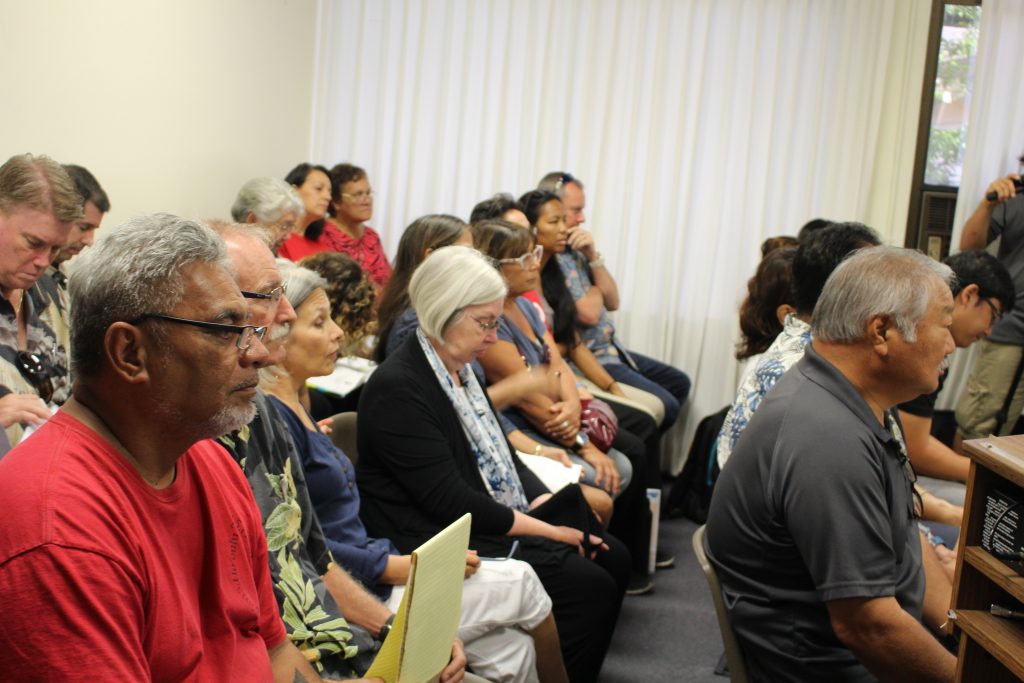
Liquor Commission meeting. PC: 5.9.17 by Wendy Osher.
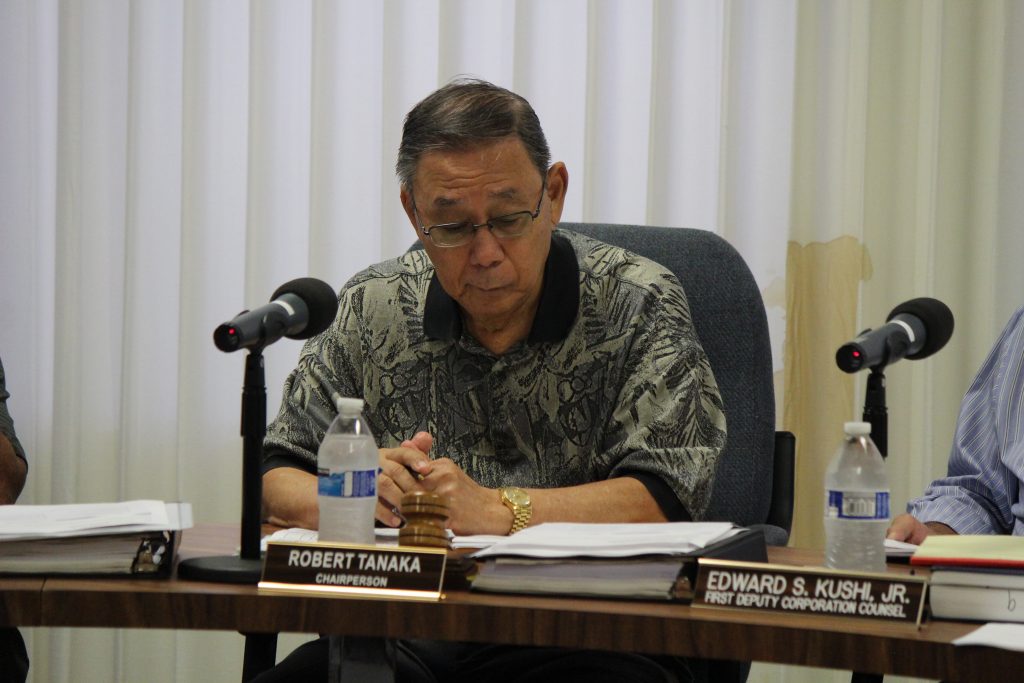
Maui Liquor Commission Chair Robert Tanaka. PC: 5.9.17 by Wendy Osher.
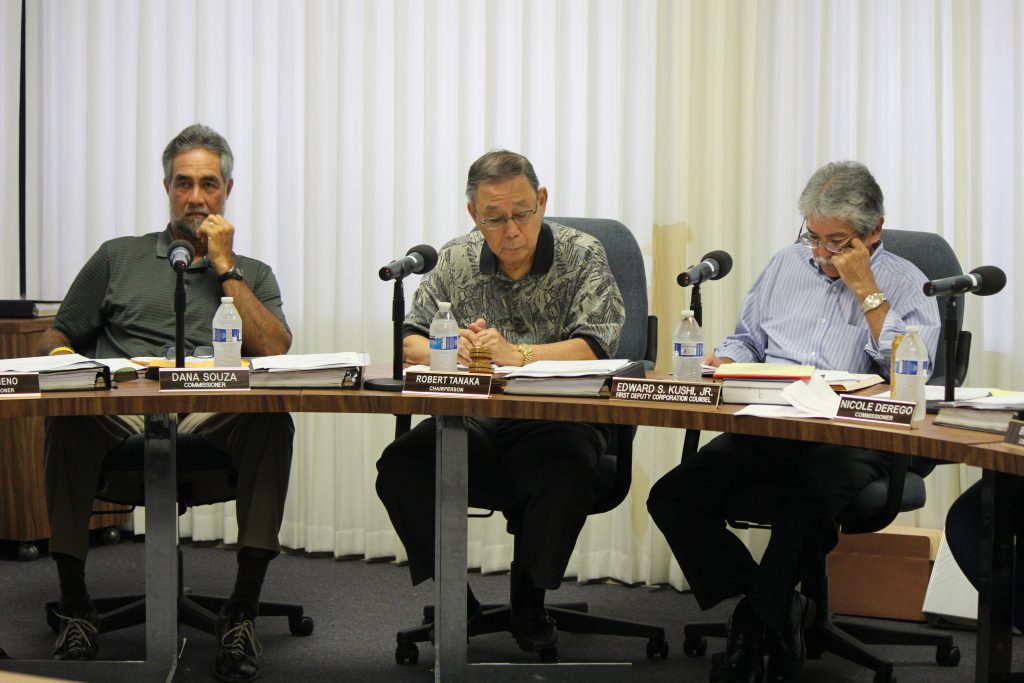
Liquor Commission meeting. PC: 5.9.17 by Wendy Osher.
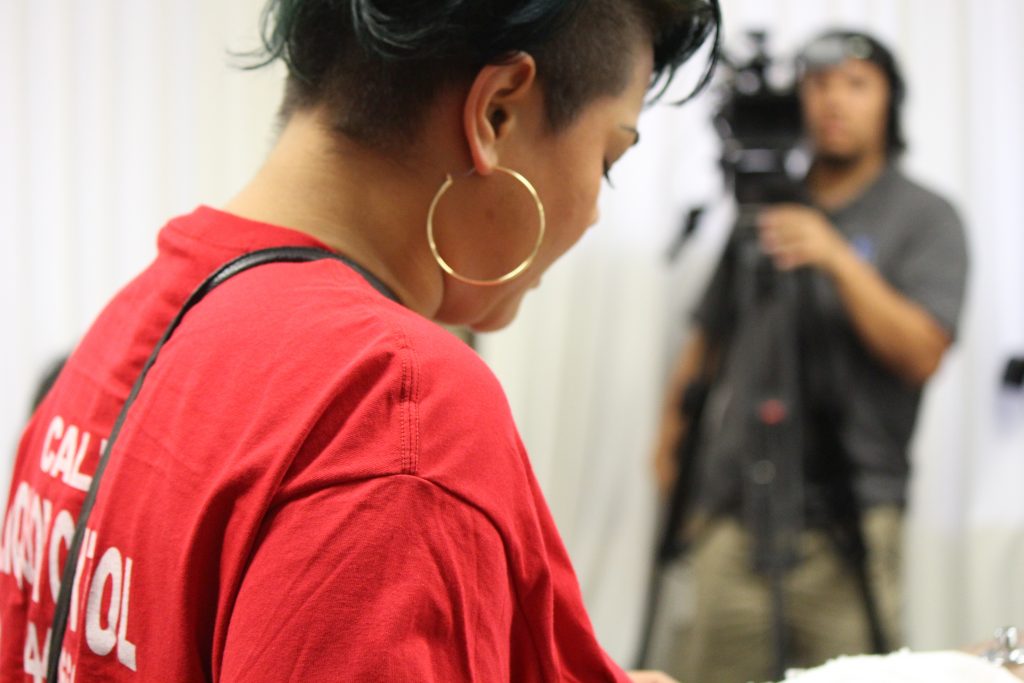
Liquor Commission meeting. PC: 5.9.17 by Wendy Osher.
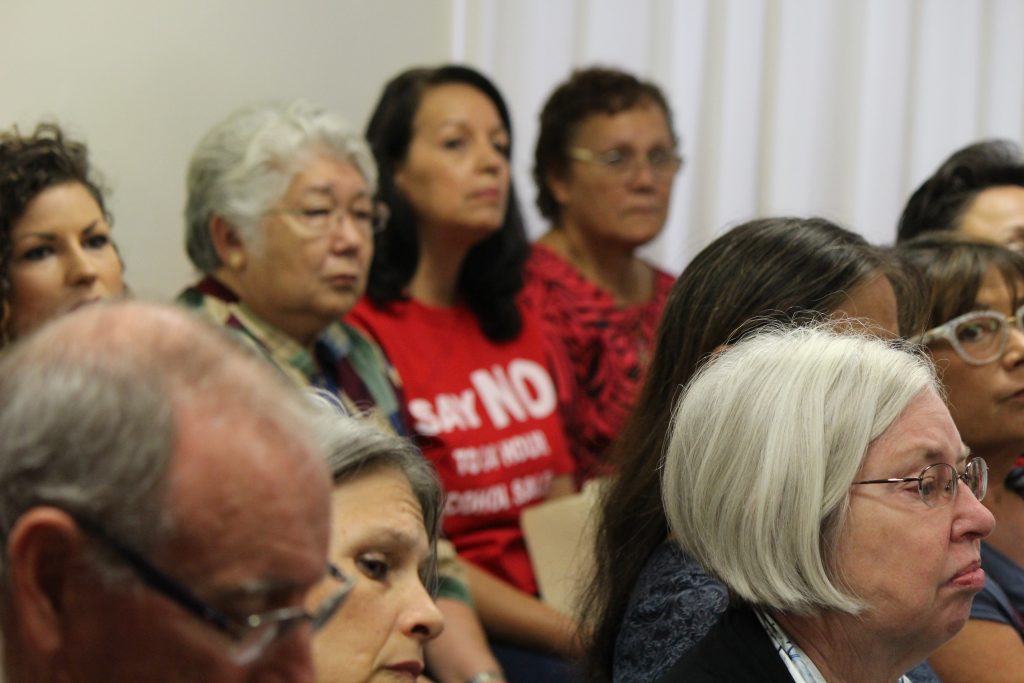
Liquor Commission meeting. PC: 5.9.17 by Wendy Osher.
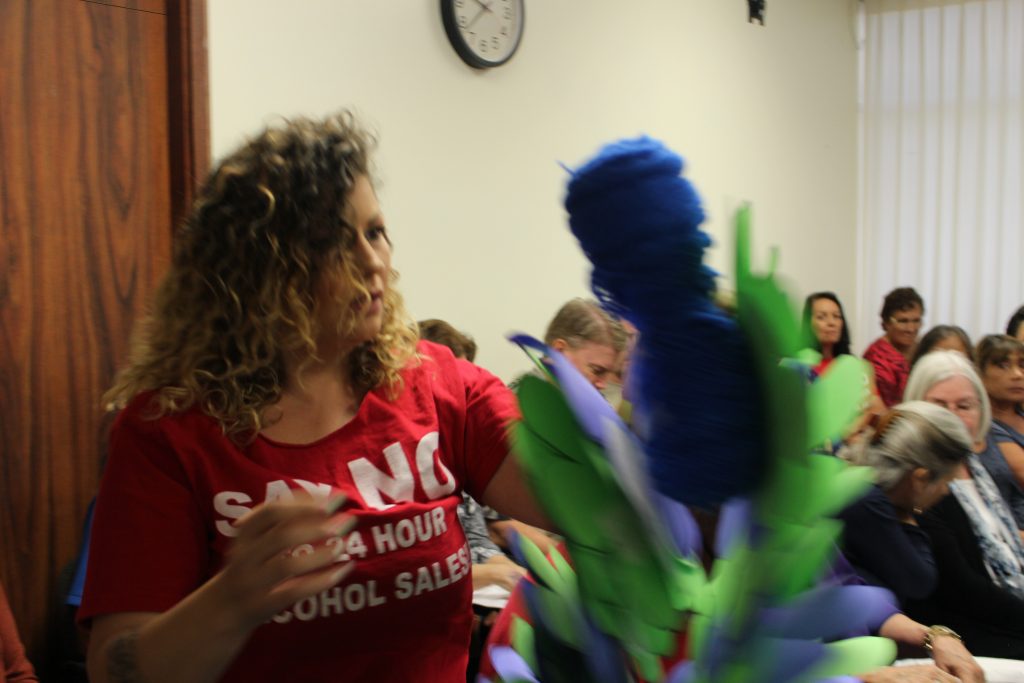
Liquor Commission meeting. PC: 5.9.17 by Wendy Osher.
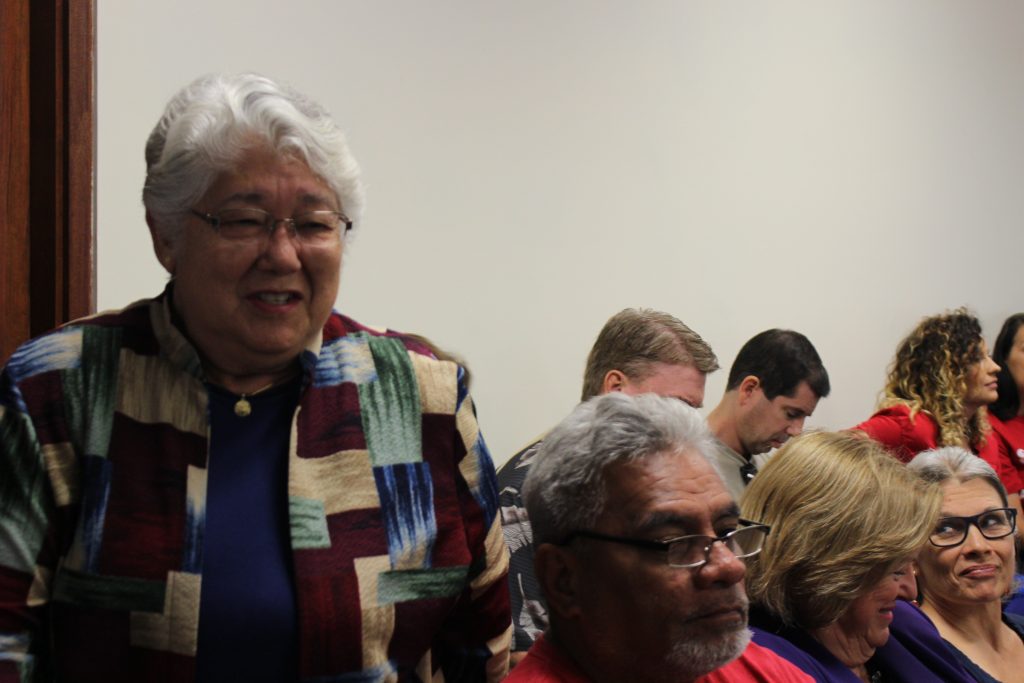
Former Maui Mayor Charmaine Tavares stands to testify at the Maui Liquor Commission meeting. PC: 5.9.17 by Wendy Osher.
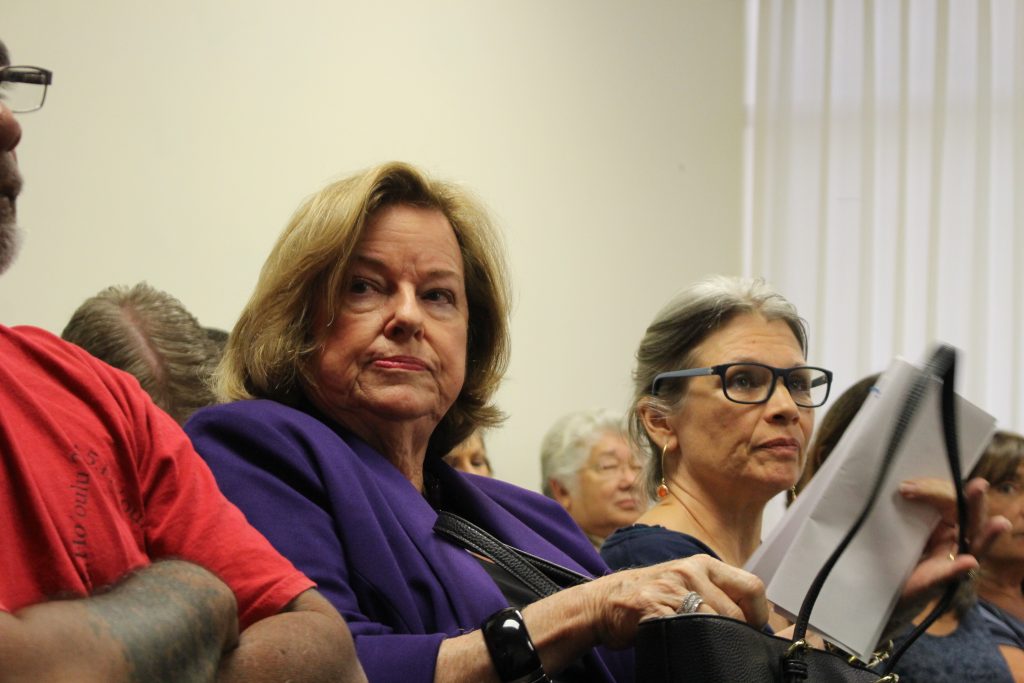
Madge Schaefer (in purple) at the Liquor Commission meeting. PC: 5.9.17 by Wendy Osher.
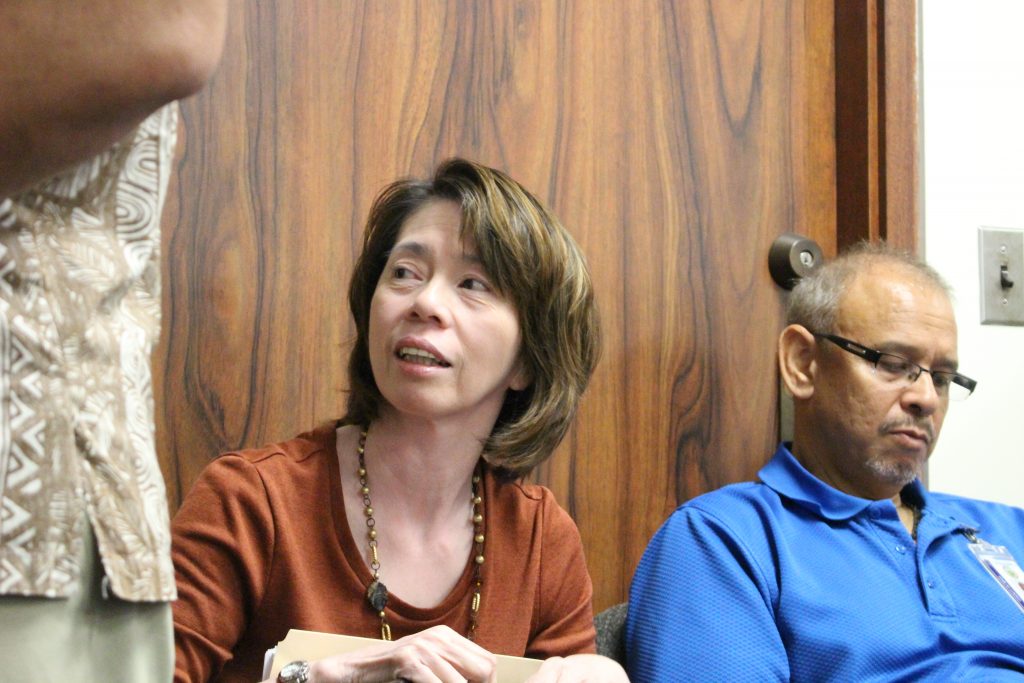
Mahina Martin at the Maui Liquor Commission meeting. PC: 5.9.17 by Wendy Osher.












